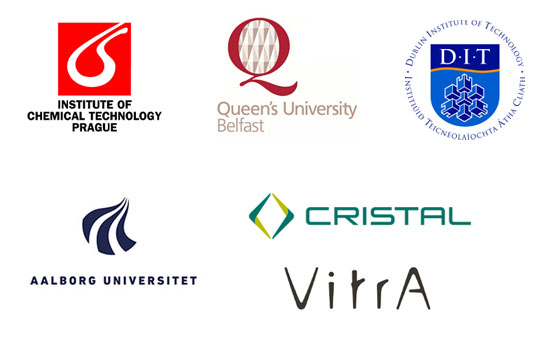INTEC Partners
INTEC is a medium-sized project with participation of four academic and two industrial partners from four different nations. The expertise within the consortium that forms this project was brought together based on the idea that the successful project requires representatives (Josef Krysa from ICT and Claire Hill from CPL) are involved in the generation of standards in the field of photocatalysis (CEN, members of TC386) on the one hand and highly skilled experts specialized in the production of standard ink indicators (QUB) and specialists in the area of testing self cleaning surfaces (ICT, QUB, DIT, AAU) on the other. Industrial partners involved (CPL, VI) then represent industry producing self cleaning surfaces on various substrates and so are able not only to provide industrially relevant samples but also an invaluable industrial perspective regarding the standards needed in the area of semiconductor photocatalysis. Their role is pivotal in providing essential feedback regarding effective photocatalyst indicator inks. Brief profile and the role of individual partners in the INTEC project is described below.
PROFILES AND ROLES OF INTEC PARTNERS:
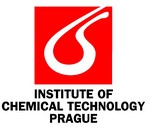
Brief profile
Institute of Chemical Technology, Prague (ICT) is the biggest educational institution of its kind in Central Europe. Its tradition of almost 200 years combined with progressive fields of study and a good international repute allows every student to get in touch with advanced research and technologies. It offers a prospect of a prestigious and highly remunerative professional career both in the Czech Republic and abroad. ICT is also known for both the depth and broadness of its research activities in almost all branches of chemistry, chemical engineering, food chemistry and technology, biochemistry, refining, water-treatment, power and biological sciences and technologies, as well as environment protection, materials sciences and other chemistry-based fields of study.
Main tasks in the projects
The ICT is the Coordinator of the project. It will also produce, pre-test and distribute selfcleaning glass samples to be used in the round robin tests. ICT will also be involved in all round robin testing and work closely with QUB in the initial and subsequent drafting of the CEN standard. ICT will also aid in the dissemination of the results, through national and international presentations to industry and academic institutions. The ICT team will generate and provide photocatalyst coated fabric samples to all consortium members for the round robin testing.
Contact
Prof. Dr. Ing. Josef Krysa, Department of Inorganic Technology, Institute of Chemical Technology, Prague, Czech Republic. Phone.: +420 22044 4112, fax: +420 22044 4410, E-mail:
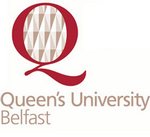
Brief profile
Queen University Belfast (QUB) is a broadly based, research-driven university with a dynamic world-class research and education portfolio and strong international connections. The University's priority is to achieve nationally and internationally recognised research excellence in all of its many and varied disciplines, with world-class research in distinctive niches and thematic areas. An emphasis is placed on the expansion of inter-disciplinary and multi-disciplinary activities. The School of Chemistry and Chemical Engineering is in the top 20 in the UK in terms of research and is world leading in the areas of catalysis and materials.
Main tasks in the projects
The QUB team will produce, pre-test (for QC purposes) and distribute all the photocatalyst activity indicator inks to be used in the round robin tests. They will also train all members of the consortium in the art of production and application of all the inks. QUB will also be involved in all round robin testing and work closely with ICT in the initial and subsequent drafting of the CEN standard. QUB will also aid in the dissemination of the results, through national and international presentations to industry and academic institutions.
Contact
Prof. Andrew Mills, School of Chemistry and Chemical Engineering, Queen's University Belfast, UK. Phone: +44 2890974339, Fax: +442890976524, E-mail:
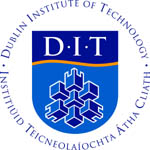
Brief profile
Dublin Institute of Technology (DIT) has been an integral part of the Irish Higher Education system for more than a century. DIT is now one of Ireland's largest and most innovative university-level institutions. There are 20,000 students registered in DIT, and over 2000 members of staff. Centre for Research in Engineering Surface Technology (CREST) is an industry-focused surface coatings centre, within Dublin Institute of Technology (DIT) and supported by Enterprise Ireland (EI). CREST is an ISO-9001 2008 accredited organisation. CREST-DIT developed, patented and licensed photocatalytically active coatings for healthcare applications.
Main tasks in the projects
The DIT team will conduct the round robin testing of all samples and attend consortium meetings and workshops and read through and assist to prepare documents/presentations. DIT will lead WP 3.
Contact
Dr. Suresh C. Pillai, Dublin Institute of Technology, Dublin, Ireland. Phone: +3531 4027946, E-mail:
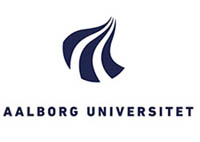
Brief profile
Aalborg University Esbjerg (AAU) is a section of Aalborg University located in the city of Esbjerg, Denmark. Aalborg University Esbjerg is a research department with a range of research activities and study programmes. Approximately 400 students and a number of study programmes comprising Energy, Chemical Engineering, Oil and Gas Technology, Civil Engineering, Mechanical Engineering, Electronics and Medialogy and 100 employees are , affiliated the campus.
Main tasks in the projects
The AAU team will participate in the round robin test and dissemination of the results.
Contact
Dr. Witold Szwebs, Aalborg University, Denmark. Phone: +4599409939, E-mail:

Brief profile
Cristal Pigment UK Limited (CPL) (former Millennium Inorganic Chemicals Ltd) is a wholly owned subsidiary of Cristal Global. Cristal Global is the 2nd largest titanium dioxide producer in the world and a leading manufacturer of ultrafine TiO2. Cristal Global has 8 TiO2 manufacturing plants in 6 countries across 5 continents. It employs approximately 3,800 employees worldwide and has total combined sales of ~US$ 1.7 bn (2007).
Main tasks in the projects
The CPL team will prepare photocatalytic paints and cementitous materials which will be distributed to all consortium members for round robin testing. The group will participate in the round robin testing of those materials. CPL will actively participate in consortium meetings and workshops and provide support to Partner 1 (ICT) in the drafting of the CEN standard. CPL will also aid in the dissemination of the results, through contact with end-users of photocatalytic products.
Contact
Dr. Claire Hill, Cristal Pigment UK Limited, UK. Phone: +441469553300, E-mail:
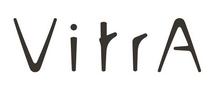
Brief profile
VitrA Ireland (VI) was established in 1999 in Arklow, Co. Wicklow, Ireland. The main markets for VitrA Ireland are UK, Germany, Scandinavia, Russia, the middle easts, and North America. VitrA has sales offices in UK, Russia and USA and production units and sales teams in Germany, France and Turkey. VitrA sells through the retail and the architectural market and has developed two different ranges of wall and floor tile products. Many of the VitrA tiles products are currently used in hospitals, hotels, homes, gyms, airports etc. The introduction of the proposed innovative product will provide a unique competitive advantage to position VitrA as a market leader in ceramics industry.
Main tasks in the projects
The VitrA team will generate and provide photocatalyst coated tile samples to all consortium members for the round robin testing. VitrA will attend consortium meetings and workshops and read through and help to prepare documents/presentations.
Contact
Robert Hickson, VitrA Ireland Ltd., Arklow, Ireland. Phone: +3535879197772, E-mail:
